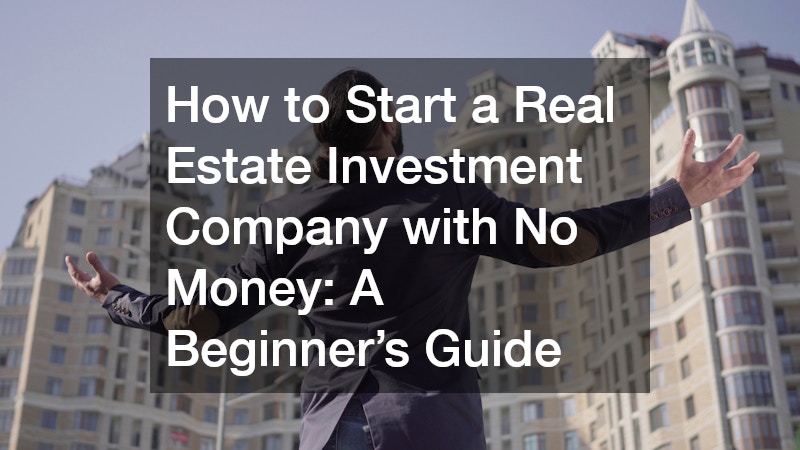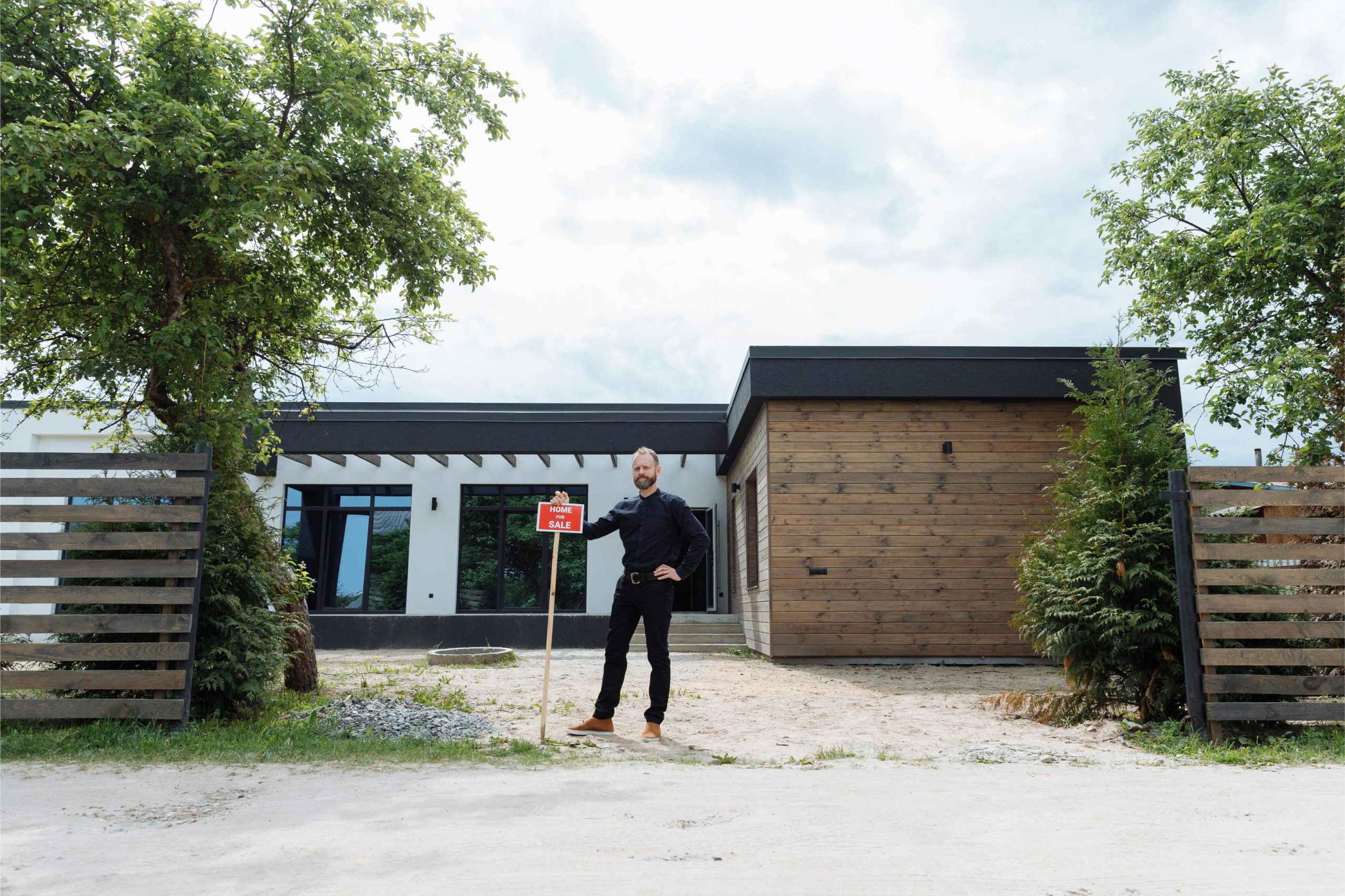
Starting a real estate investment company might sound like a capital-intensive dream reserved for those with deep pockets. But thanks to creative financing strategies, the digital age, and a shift in how real estate deals are structured, it’s entirely possible to launch a profitable real estate investment business with little to no money of your own.
This beginner-friendly guide is designed specifically for aspiring entrepreneurs who want to build wealth through real estate without significant upfront investment. You’ll discover practical strategies, smart funding solutions, legal tips, and step-by-step advice to help you start small but grow big. Whether you’re aiming to flip houses, build a rental portfolio, or explore commercial properties, this guide will show you that your lack of capital doesn’t have to hold you back.
What Does a Real Estate Investment Company Actually Do?
Before diving in, it’s essential to understand the role of a real estate investment company. These businesses buy, sell, manage, or finance real estate for profit. They can specialize in:
- Residential or commercial properties
- Flipping houses
- Rental income and property management
- Real estate wholesaling
- Real estate development
Such companies generate income through appreciation, rental yields, or transactional profits. Structuring your real estate business properly allows you to scale over time, attract partners, and build long-term wealth.
Is It Really Possible to Start with No Money?
Yes—but with a catch.
You may not need your own money, but you will need somebody’s money. The key lies in leveraging assets, skills, relationships, and financing alternatives that allow you to control property without upfront capital.
Starting with no money doesn’t mean there are zero costs—it means you use creative strategies and other people’s money (OPM) to cover them. You must also invest your time, knowledge, and effort instead of capital to gain momentum.
Step 1: Master the Real Estate Fundamentals
You don’t need money to learn the business, but you do need knowledge to succeed.
Here’s what to focus on:
- Understand different investment strategies (buy-and-hold, wholesaling, fix-and-flip, BRRRR method)
- Learn how to analyze deals using metrics like cap rate, cash-on-cash return, and ROI
- Study local real estate laws and zoning regulations
- Explore market trends to identify growth areas
Free or low-cost learning resources:
- YouTube channels (e.g., Graham Stephan, Meet Kevin)
- Podcasts like BiggerPockets
- Free webinars and local REI (Real Estate Investor) meetups
- Public records and property data online
- eBooks and guides from reputable platforms
Remember: Knowledge is your first form of capital. Master the rules before you start playing the game.
Step 2: Build a Solid Real Estate Business Plan
Even if you’re starting with zero money, you can’t operate with zero direction.
Your business plan acts as your roadmap and is crucial when pitching investors or lenders. It should include:
- Mission and vision statement
- Investment strategy (residential rentals, flips, etc.)
- Target market and location
- Funding strategy (private investors, hard money, partnerships)
- Marketing plan
- Operational plan (team, tools, timelines)
- Exit strategies
- Financial projections
This plan helps you stay focused, reduce risk, and attract partners or financing even if you’re not putting in your own cash.
Step 3: Choose the Right Legal Structure
Registering your business legitimizes your operations and protects your personal assets.
Common legal structures:
- LLC (Limited Liability Company): Most popular for real estate due to liability protection and pass-through taxation.
- Partnership: Useful when working with others who contribute money, while you bring in the hustle.
- S Corporation or C Corporation: Better for larger companies, but comes with more regulations.
Also:
- Obtain an EIN (Employer Identification Number) from the IRS
- Open a separate business bank account
- Consult a real estate attorney or accountant
Getting the legal foundation right from the beginning can help you scale later, especially when seeking funding.
Step 4: Use Creative Financing and Partnerships
How to Start a Real Estate Investment Company with No Money
This is the heart of the strategy. Since you’re not using your own capital, you’ll need to get creative.
1. Wholesaling
- Find undervalued properties
- Put them under contract
- Sell the contract to another investor for a fee
- Requires negotiation skills and market knowledge, not money
2. Bird-Dogging
- Scout potential deals for other investors
- Get paid a referral or finder’s fee
- A great way to network and learn the ropes
3. Seller Financing
- Negotiate directly with property owners
- Arrange to make payments over time instead of a large lump sum
- Reduces or eliminates the need for a bank loan
4. Private Money and Hard Money Lenders
- Private lenders = individuals with capital to invest
- Hard money lenders = firms that offer short-term loans for property purchases
- You pitch a great deal; they fund it
5. Partner with Investors
- Find capital partners who fund the deal
- You manage everything (the “sweat equity”)
- Split profits fairly
These strategies help you control real estate with little to no upfront capital while building your reputation.
Step 5: Build a Network of Professionals
You can’t build a real estate company alone, especially without money.
Assemble a dream team of experienced professionals who can support your deals, especially when you lack experience or capital.
Your network should include:
- Real estate agents (especially investor-friendly ones)
- Contractors and inspectors
- Attorneys and title companies
- Lenders (private, hard money, traditional banks)
- Property managers
- Accountants
Attend real estate investment meetups, join online communities, and don’t be shy about introducing yourself. People will work with you if you’re reliable, ethical, and resourceful.
Step 6: Start Small and Scale Strategically
Trying to jump into massive projects with no experience or money is risky. Start with low-barrier opportunities to build capital, credibility, and connections.
Good starting points:
- Wholesaling deals for fast cash
- Finding distressed properties for investors
- Bird-dogging in hot markets
- Co-hosting Airbnb rentals with a property owner
- House hacking (renting part of your own home)
As you complete successful deals:
- Document your results
- Get testimonials from partners
- Reinvest profits into your own deals
- Attract more serious partners or lenders
With momentum, your real estate company becomes more credible, attracting better deals and funding.
Step 7: Leverage Technology and Automation
Technology can help you do more with less.
Useful tools include:
- Deal calculators like DealCheck or Property Evaluator
- CRM software like HubSpot or Zoho to manage contacts and leads
- Email automation to stay in touch with potential investors or sellers
- Property sourcing platforms (PropStream, Zillow, Realtor.com)
- Google Workspace or Notion for organizing your business
Don’t wait until you’re “big” to act like a company. Automate your workflow early to save time and stay organized.
Step 8: Establish Your Online Presence and Brand
A professional online presence builds trust and attracts partners or clients.
Start with:
- A simple business website with your services, mission, and contact info
- A LinkedIn profile that emphasizes your real estate goals and skills
- Active participation in Facebook real estate groups
- A free blog or YouTube channel that shares your learning journey
You don’t need to be famous, but you do need to be visible. Your credibility online can often open doors that your bank account can’t.
Step 9: Protect Your Investments and Reputation
Even if you’re not investing money, your reputation is your biggest asset.
Always:
- Honor contracts and commitments
- Be transparent about your experience and capabilities
- Document everything—use contracts, agreements, and disclosures
- Maintain ethical standards
As your company grows, you’ll also need insurance, bookkeeping, and compliance tools to protect your operations and reduce liability.
Step 10: Keep Learning and Adapting
The market changes. Laws shift. Strategies evolve.
Stay current by:
- Reading real estate blogs and books
- Attending seminars and webinars
- Learning from mentors and seasoned investors
- Testing new tactics and adjusting your model
Real estate investing is a marathon, not a sprint. Starting with no money requires hustle and adaptability, but long-term growth is absolutely achievable.
What Skills Do You Need to Succeed Without Capital?
When you don’t have money to invest upfront, your skills become your greatest asset. To thrive in real estate investing without your own capital, you must develop a blend of technical, interpersonal, and strategic skills that allow you to create value for others.
Key skills include:
- Negotiation: You’ll often need to negotiate favorable terms with sellers, partners, or lenders.
- Sales and communication: Whether you’re pitching deals or building your network, strong communication helps build trust.
- Market analysis: Knowing how to spot undervalued properties or emerging markets gives you an edge.
- Problem-solving: Creative financing requires flexibility and quick thinking.
- Networking and relationship-building: Trust opens doors when money can’t.
These skills help you gain credibility, attract investors, and unlock opportunities others might miss. If you focus on self-improvement, you’ll increase your chances of success, regardless of your starting capital.
Final Thoughts
You don’t need a six-figure bank account to start a real estate investment company. You need a plan, persistence, education, and the right network. Many successful investors started with no capital—just grit, hustle, and the ability to find and structure great deals.
By learning how to leverage resources, tap into creative financing, and surround yourself with the right people, you can start small and build a thriving real estate business that generates wealth for years to come.
Key Takeaways
- You can start a real estate investment company with no money, but you must bring something else to the table (knowledge, effort, or connections).
- Focus on wholesaling, bird-dogging, and partnerships to get your first few deals.
- Build a legit business with a solid plan and legal structure.
- Leverage other people’s money (OPM) through private lenders, hard money loans, or seller financing.
- Stay professional, ethical, and consistent as you grow your brand and network.






